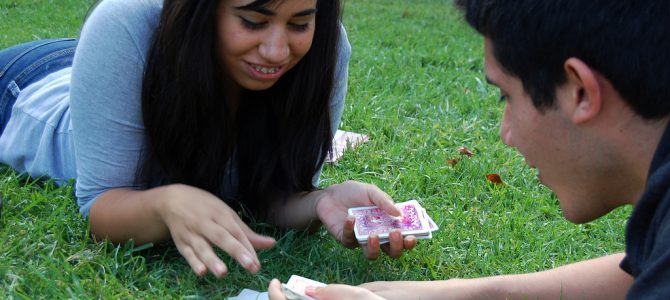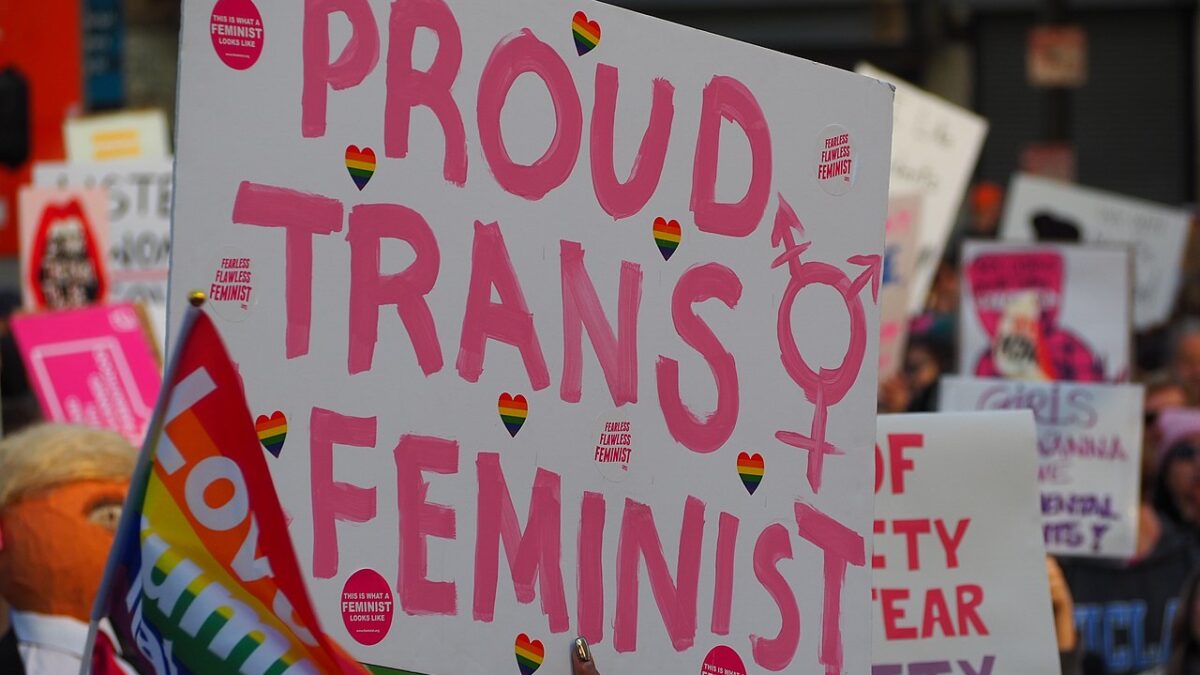
Pop culture tells us that men and women have been liberated from the social constructs that once shackled them to predetermined roles. Now that gender doesn’t matter, there is no reason why a woman’s best friend shouldn’t be a dude (and vice versa).
The more awkward aspects of this blithe theory are revealed when it’s my boyfriend who wants to confide his deepest emotions to another woman, or when it’s your wife who likes to go see movies with that handsome male co-worker of hers. Some conservatives point to this natural discomfort as evidence of an older truth. They say human beings were designed to couple up, and therefore we should all find ourselves a spouse and stop trying to extract emotional fulfillment from friendships that are bound to hurt one or both parties by creating desires that mere friendship cannot fulfill.
A need for friendship and community, however, is part of being human. Just because marriage is a beautiful gift and the foundation of society doesn’t mean it is the only part of society that matters. In fact, one of the historic functions of the nuclear family has been to care for others by giving them access to familial warmth and community. In the past, people sometimes did this by taking the elderly and the orphaned into their homes. Sometimes they did it by saving a place at the table for bachelor uncles and maiden aunts. Sometimes they did it by offering warmth and friendship to people of the opposite sex.
That last item is often obscured by stereotypes about the past. We claim, “Oh dear, those individuals who lived beneath the yoke of senseless propriety were unable to interact genuinely with the opposite sex! They lacked the freedom to just be friends! How sad it was to live back then!” We think it better to tell everyone (especially Mike Pence) to just trust each other. That way, anyone can be best buds with anyone else. What we don’t realize is that propriety is actually a source of tremendous social freedom.
When Behavior Is a Language Everyone Understands
When I was young, my family participated in Civil War reenacting. We attended balls held in the style of approximately 1863. Ladies wore carefully researched gowns, corsets, and hoop skirts. Gentleman attired themselves either in civilian tailcoats and cravats or in period military uniform. Everyone was coached on the manners and social rules of the mid-nineteenth-century. I still remember the unexpected reaction of the boys who came to those balls. One might think the last thing a normal a 13-year-old lad would enjoy is filling out girls’ dance cards while wearing a cravat.
Yet those boys found the rules of period etiquette a tremendous relief. They knew exactly what they were supposed to do—how to ask a pretty girl to dance (and that she would not say “no”), what to do on the dance floor, what to say afterwards, and where to escort her when each song ended. There was no awkward implication to dancing with anyone, so they danced with everyone. There was no need to come up with original banter, so they bowed and thanked each lady. They had a blast.
They are not the only ones who have found the rules of the nineteenth century liberating. It is fascinating to read primary source material from that era and to see the relationships that blossomed within the structure of rules. For instance, Mary Boykin Chesnut’s Civil War diary reveals an upper-class southern society thickly intertwined with rules of decorum. She was also able as a matter of course to have many personal friendships with men.
These gentlemen called, not on her busy husband, but on her. They confided thoughts and concerns to her. They bantered with her and gave her flowers. All of this was perfectly acceptable because it all fell within the boundaries of clearly understood social rules.
Friendship Thrives When Everyone Knows the Score
One of the societal constructs that allowed for these relationships was marriage without the expectation of divorce. Chesnut, as a married, middle-aged woman, was already “taken” and therefore free from the concern that men might misinterpret her friendly interest. Another was a structured social system that routinely taught men and women to interact with each other.
For instance, whenever people of Chesnut’s class attended a dinner party, they were given a dinner partner who was not their spouse and expected to be pleasant and entertaining to that person. Propriety bestowed a way to enjoy friendship without the heart-burning caused when men and women cast off all rules and then struggle to identify the line between friendship and temptation.
If we really want men and women to be friends, we ought to rethink the way in which we try to nurture that. It is not that we should idealize the (flawed) local customs in any particular time or place. The point is that we can learn from a social system that recognized three important truths: 1. The sex of individuals matters. 2. Friendship is not just about two people: it is about a community as a whole. 3. Because men and women complement each other, it enlarges the humanity of both sexes when we are able to learn from each other.
Yes, human beings have a natural desire to couple up. Marriage is the ultimate and most-fulfilling result of that drive. Yet we all are given many vocations in life, and friendship is one of them. The reason nineteenth-century social etiquette worked was because it was not at core arbitrary. It was based on the pursuit of virtue.
In the eyes of its practitioners, it was a way to practice self-control, hospitality, and care for neighbors—in other words, to live out a variety of vocations with an eye to the good of the whole community. Modern Americans are likely to pursue those virtues in slightly different ways. That is fine. That is good. However we do it, let us seek after social virtue with a few more dinner parties and a few more rules of propriety.









